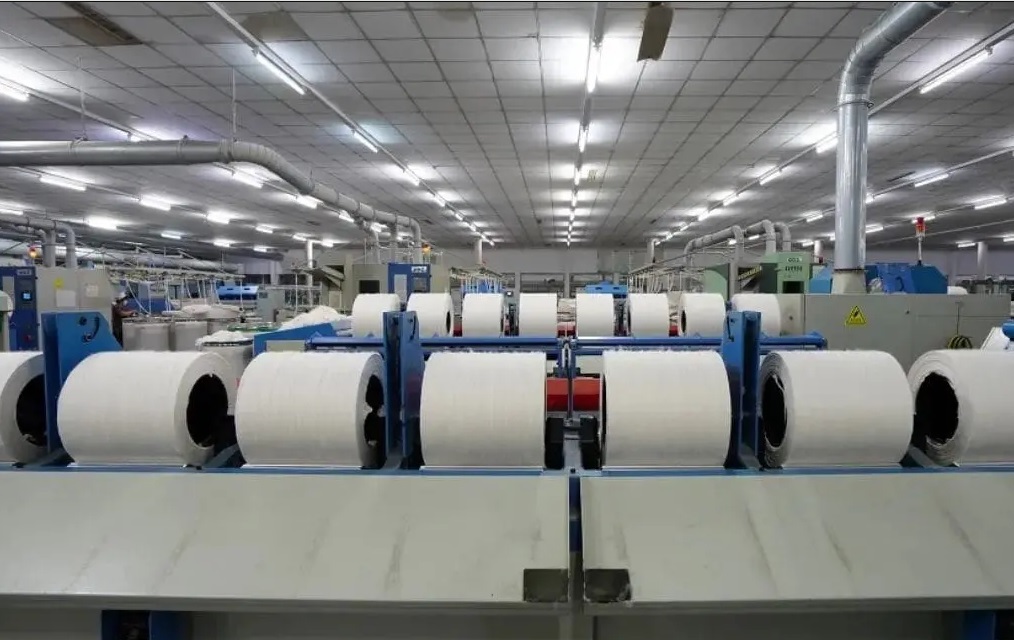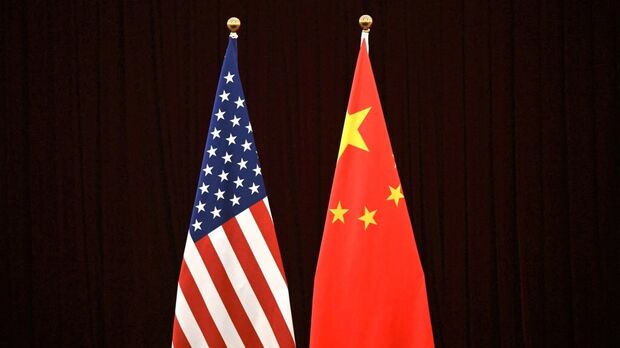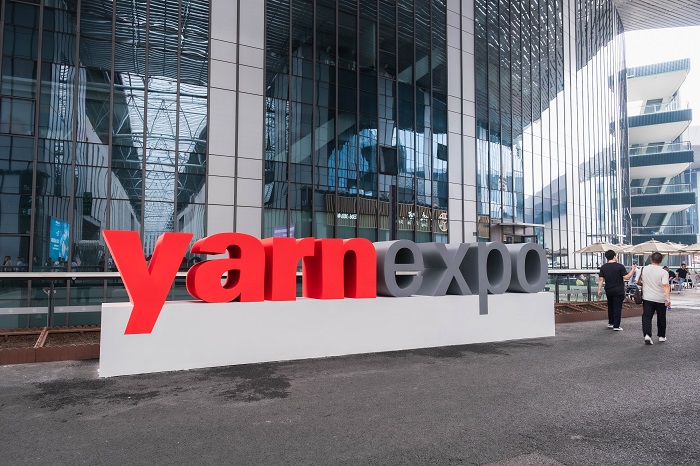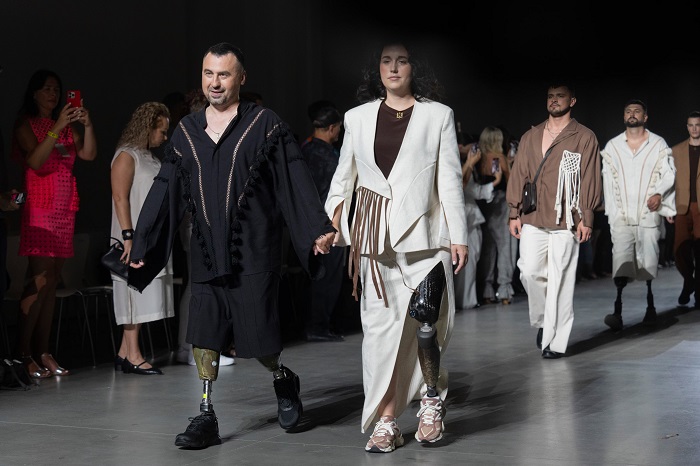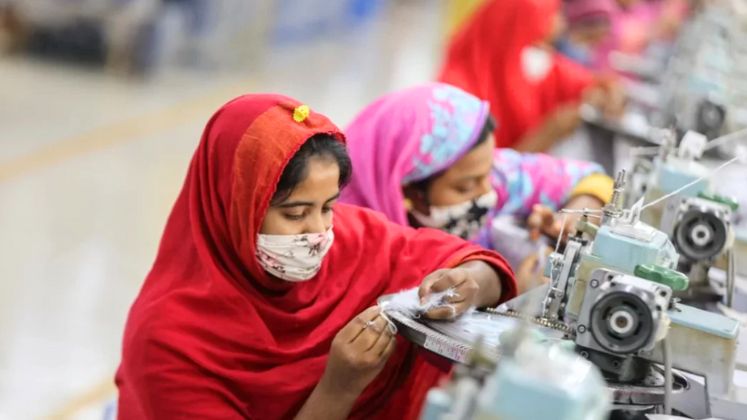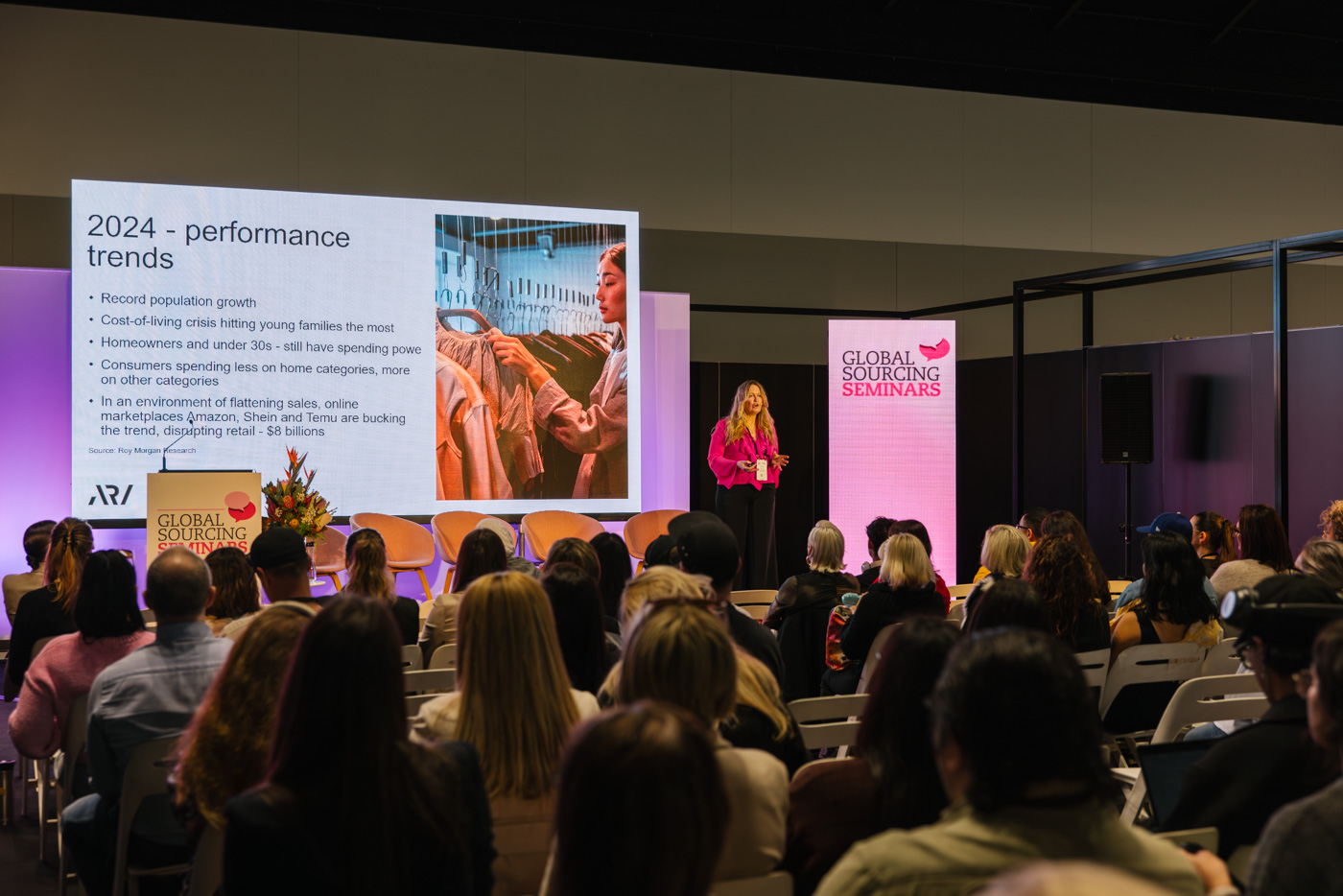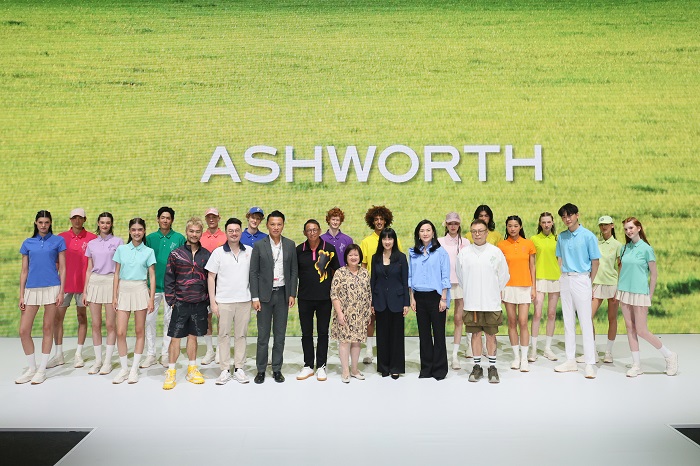FW
Denimsandjeans.com is organizing its second denim show in Bangladesh on October 15 and 16, at Hotel Radisson. The last edition of the invite only show was held in March 2014 and was a successful event with a number of important denim mills, factories, chemical and accessory companies visiting it.
With the country growing to become the second largest denim apparel manufacturing destination worldwide after China and the availability of all types of raw materials, skill-set and resources have been attracting all major brands and retailers from EU and the US to increase their sourcing needs from the country. This is the reason why, the second edition of Denimsandjeans would be held in Bangladesh.
The first show had participation from some of the important denim companies worldwide including Candiani (Italy), Vicunha (Brazil), Arvind (India), Artistic (Pakistan) and participation by major brands, retailers and buying houses including companies like Benetton, C&A, Carrefour, Celio, CharlesVoegele, Cortefiel, Debenhams, Dewhirst, El Corte Ingles, Esprit and many others. Along with all these, some of the important denim and related companies in technology, chemicals, piece dyes are expected to be a part of the show.
The event will witness participants from Brazil, Turkey, India, Pakistan, Bangladesh , Germany, Hong Kong and China. Bangladesh, despite some unfortunate incidents like fire and building collapse in last two years, has become the favourite sourcing destination among retailers and brands worldwide. The country has now also started producing value added jeans and apparel using skills and technology installed from around the world. The country is not only able to import fabrics and accessories from other countries, but its textile industry base is increasingly supporting its garment export sector. Its current denim fabric production covers about 40 per cent of its requirements.
India's polyester imports have jumped substantially over the past two months after country-specific dumping duties — on top of a five per cent basic customs duty — were imposed on a key raw material in July, hurting domestic producers’ competitiveness. Anti-dumping duties were imposed on imports of purified terephtalic acid (PTA) from China, Korea, the European Union and Thailand.
Purified terephtalic acid is used in making polyester staple fibre, polyester filament yarn and film. Subsequently, imports of polyester staple fiber more than tripled in July-August this year. Similarly, purchases of polyester filament yarn from overseas climbed 130 per cent in the last two months from a year earlier. Companies using PTA have sought the removal of anti-dumping duties, arguing that no industry can work on the inverted duty structure whereby imports of raw materials are taxed higher than those of finished products.
If that’s not possible, they say, the government should scrap the five per cent basic customs duty on the yarn and raise the import duty on the finished goods so that domestic industry isn’t harmed and India’s export competitiveness in synthetic or blended textiles and garments is not undermined. India produced 3.47 million tons of PTA in 2012-2013 compared with the demand of 4.12 million tons.
Jeanologia, the Spanish company, awarded with the WGSN Global Fashion Award for best sustainable design team in the world, shows its latest developments in Paris during Premiere Vision from September 16 to 18, 2014. The company would be presenting J-Knits in Wash & Dye space. It is a collection of indigo knit garments produced using sustainable technologies to create Jeanologia worn effects, vintage or even quilting and embroidery, among others.
The company designs and develops sustainable solutions such as laser, ozone and nano-bubbles that reduce the consumption of water, energy and eliminates waste and harmful emissions in the process of garments finishing. The uses of these techniques enable automation of processes and the development of sustainable production that reduce costs and increase productivity in the textile industry.
The textile laser of Jeanologia reproduces in an automatic and efficient way, rips or textures in green way, saving energy, water, chemicals, hand labour and time in the production process. The company, with more than 20 years of experience, is the world leader of sustainable technologies development. The Spanish company has customers across five continents. Jeanologia products and solutions are currently being used in more than 45 countries including: México, Colombia, Brazil, USA, Germany, Italy, Portugal, India, China, Russia, Japan, Morocco and Bangladesh.
www.jeanologia.com
Pakistan is grappling with severe floods and this has affected cotton prices, which have shot up by 7 per cent and yarn prices are up by 20 per cent . This is because vast tracts have been completely submerged. Whenever the price of cotton increases, there is a resultant increase in yarn prices. This will make the country’s products less competitive in international markets.
Crops worth billions of rupees have been destroyed. The fields saved from the floods are vulnerable to pest attacks. If it were not for the floods, Pakistan would have had a higher cotton production this year. Multan and surrounding areas in Punjab province are on high alert as the Chenab river continues to surge south at extremely high levels. Multan, one of Pakistan's largest cities, is surrounded by vast tracts of agricultural land and is one of the country's major cotton producers.
The downpour this year has come at the end of the monsoon season, and its severity has been restricted to the Himalayan region of Kashmir. Much of this water fed into the Chenab river sending down its worst floods since 1992. The people that had colonised those parts of the river bed that had turned dry over the last two decades are those most affected by the deluge.
The UAE has emerged as the world's fourth largest trading center for fashion and apparels. It has 150 apparel manufacturing companies and exports of materials and finished products have now reach more than 50 countries across Africa, the Middle East, South Asia and Europe. The region’s sales account for about 5.5 per cent of the world’s annual textile and clothing sales. Textile products produced in the UAE include car seats, tents and curtains, in addition to garments. Knitted fabric is the most in demand in the UAE, accounting for around 49.7 per cent, followed by woven fabrics.
The textile industry occupies an important place in UAE’s economy, particularly in Dubai, because of its contribution to industrial output, employment generation and foreign exchange earnings. Its textile and garment companies have improved and upgraded their raw material storage, packing and transport facilities for large-scale operations.
But the industry is now facing a rise in production costs. And apparel industry owners are shifting to other low cost centers like China, India, Bangladesh, Kenya and Ethiopia. They see the African market is an emerging one with disposable incomes and people wanting to buy merchandise. Already the African market is expected to account for a growing proportion of the UAE’s re-exported auto parts market during the coming years.
Bangladesh readymade garment exporters have developed the skills to outsource export orders on their own initiative. Skilled human resources, better production, forward linkages, fashion and designing technology and offshore negotiation skills have helped them do this.
Due to this, big exporters prefer free on board ways than cutting and manufacturing. They bypass dealing with buyers and their dependence on buying houses has fallen by 60 per cent over the last three decades. But small and medium exporters rely on buying houses as they do not have enough capacity for offshore dealing and cannot fulfill buyers' requirements. They still pay five to 15 per cent commission to buying houses.
These small exporters’ forward linkage and other backward linkages are not enough to export on a free on board basis. They get export orders on a CM basis and the buying houses manage their buyers from getting orders and shipment so they need to pay the buying houses at different stages.
Three decades back, when Bangladesh just started readymade garments exports, it was completely dependent on buying houses and paid a good portion of the profit to them. It’s expected that within the next five years at least 80 per cent exporters would depend on direct negotiations with buyers.
Russia imports up to 70 per cent of its man-made fiber requirements. The textile industry continues to be heavily dependent on China. It’s plagued by outdated production methods and underutilization of capacity. To get over this problem, there’s now a plan to establish new production facilities in the industry on the basis of a public-private partnership.
The structure of demand in the domestic man-made fiber industry has significantly changed. In the past, the majority of industry’s output was used in standard textiles and cigarette production, whereas there is now significantly increased demand from industries such as road-building and composite materials. The domestic construction industry is the main buyer. Other important clients include the textile spinning and weaving companies and the automotive industry.
At present the Russian man-made fiber industry comprises 14 large enterprises. The industry is very concentrated, with 82 per cent of the turnover in the hands of five largest companies. The production of man-made fibers and yarns in Russia last year reached about 150,000 tons. A new complex is now coming up for the production of man-made fibers. This will have the capacity to produce 2,00,000 tons of fiber per year, 15 million linear meters per year and will produce up to 25 different types of fabrics.
Invista, largest integrated producers of chemical intermediates, polymers and fibers has joined forces with South China University of Technology (SCUT) to develop talent in the chemical industry. The company awarded the ‘Invista Encouragement Scholarship’ to students from School of Chemistry and Chemical Engineering and also held a ‘Principled EntrepreneurshipTM Talents’ forum.
South China University of Technology is a national university directly managed by the China Ministry of Education. Through this scholarship, Invista aims to support and encourage outstanding chemistry undergraduates and graduates to pursue education and research in the chemical industry. At the forum, Invista explained the expertise required by the chemical industry and the importance of embracing corporate culture. SCUT graduates working in Invista also shared their experience with students, explaining their transition them from university to the workforce.
As a part of Invista’s community outreach initiatives, its offices and manufacturing sites in the region participate in and support corporate citizenship projects including scholarship programs, entrepreneurship education and youth enablement, relief efforts in emergencies. It also encourages employee involvement in projects that enhance the overall quality of life in the communities in which it operates. Besides SCUT, it has also supported local education by providing scholarship to schools in Qingpu District, Shanghai and Sanshui District, Foshan.
Premium Berlin will be held from January 19 to 21, 2015. The cutting-edge, urban fashion fair, strong in women’s wear with Scandinavian flair, will have a 17 per cent increase in exhibition space. It will cover 27,000 square meters. Some 1,800 collections will be presented. The fair's new hall will house sections called Pre collections and New Luxury and is expected to host 30 upscale brands that will promote their pre-collections more than their main ones.
The collections are chosen for their innovative character and high quality. In 2013 Premium celebrated its 10 anniversary. The event is the international industry platform for exclusive men’s wear, women’s wear, contemporary fashion, progressive sportswear, designer denims, promising newcomers. More than 1,200 collections are presented. The brand mix is curated anew every season. There’s a wide array of accessories, shoes, fragrances, cosmetics, books, CDs and home accessories. In addition to the strong presence of leading brands, Premium also focuses on current themes such as green living and premium denims.
Premium Berlin presents the most sought-after international collections and has become a mainstay of the Berlin Fashion Week. The trade show combines fashion and lifestyle from the high-end segment. Some of the participating brands are Aamaya by Priyanka, AG Jeans, Duffy, Paige, Shoto and Zoe Karssen.
An Italian textile machinery training center will be opened this month at DKTE'S (Textile & Engineering Institute of Ichalkaranji, India). Raffaella Carabelli, President of ACIMIT feels that the training center will serve as a business platform for the Indian market. The inauguration will take place in the presence of ACIMIT’s President Raffaella Carabelli and Director Federico Pellegata.
The centre, among other initiatives, will offer transfer of equipment on loan from Italian manufacturers for a maximum of three years, as well as training courses, includes the participation of three of ACIMIT’s associated members during this first stage: Bianco, Fadis and Savio. Coordinated by a workgroup formed by ACIMIT and an Indian counterpart, Rare Tech Projects, the initiative would organize and manage all on-site activities. Activities will include a mission to Italy coming November, consisting of DKTE’S professors and Indian textile operators associated with the institution.
The technology training center is part of the broader Machines Italia project financed by the Ministry for Economic Development (MiSE). The goal of the Machines Italia project in India is to support the internationalization of businesses in the sector in one of the world’s rapidly developing economies.
During the inauguration of the Italian textile machinery training center, three Indian students, whose researches on the textile machinery sector have been deemed prize-worthy by ACIMIT-DTKE’s jury, will be awarded.
www.dktes.com

